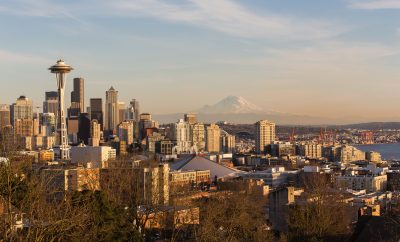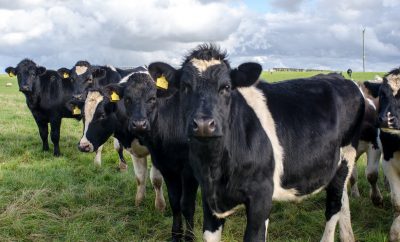
Blogs
Aquaculture: Farm the Fish to Save the Seas
While venturing out toward the stars may be the final frontier, the vast depths of the Earth’s oceans remain largely hidden from view and knowledge. The incredible diversity and sheer volume of life in the seas is staggering to the human mind, and consequently we have developed certain egregious impressions about the oceans and what they may provide for the needs of modern civilization. Some seem to feel that the oceans are sources of infinite resources for global fisheries. They are so big and teeming with life; surely there is more than we could possibly consume. This misnomer is compounded by increases in the technological efficiency of fishing, as well as the fact that oceans serve as common pool resources; many nations and parties may share, or compete for, their portion of fish yields.
Global wild fish stocks have been declining for a long time. In his seminal paper The Tragedy of the Commons, Garrett Hardin argued that the economic forces that define our approaches to use of common pool resources are not sustainable in the long run. Namely, an individual acting in the logical manner so as to maximize his share of the resources is acting against the better interest of the whole group, because every individual is doing this and ultimately everyone will suffer. This concern has plagued high seas fishing for centuries, and continues to worsen as the efficiency and rate of fishing increases. Perhaps one of the most tangible and unsettling consequences of these dynamics is the collapse of the Northwest Atlantic cod fishery in 1992, after an epic 500-year run that shaped the economic, social, and cultural development of Europe’s early North American colonies.

The cod fishing town of Portugal Cove in Newfoundland, 1908, courtesy of Musee McCord Museum via Flickr
That is to say, there are consequences other than economics and conservation when dealing with unsustainable fishing. After so many hundreds of years, the Newfoundland locals had developed cultural identities around fishing. From fishermen to transporters, to salesmen in the markets, fishing played a substantial role in their ways of life and manners of self identification. How do the residents think of themselves, their place in society, and what do they actually do with themselves now that the fishery has collapsed? These are concerns that can crop up anywhere that natural resources are strained.
Another incorrect assumption about fishing and the oceans is that anything that might go wrong there or, our actions there in general, bear no consequences to ourselves and society. This might stem from the simple fact that we do not live in the oceans, and so we do not often see with our own eyes ecological collapse there. However it is clear, as exemplified by the Newfoundland cod fishery, that the fate of the seas and their biodiversity is tightly tied to our own state of affairs.
In light of these problematic developments, a new practice has been gaining ground. Aquaculture is the process of raising fish or shrimp in tanks on land. The most important result of supplying seafood in this manner is that it takes pressure off wildlife. There are many other advantages too, as Hiroko Tabuchi explains in a New York Times article. Fish farmers tend to already have environmentally and socially conscious motivations for doing what they do, and so it is uncommon that one’s plate of farm-raised fish will contain harmful chemicals. Furthermore, it reduces the need to import certain fish species, which may be caught by way of slave labor on fishing boats in the South Pacific. Finally, it produces local jobs while promoting economic self sufficiency.

A fish farm tank, courtesy of Bytemarks via Flickr
The Atlantic cod fishery is not the only one to have failed. Eighty-five percent of marine fish stocks are considered either fully exploited or overfished, and more than one in five fisheries has collapsed. In addition to the environmental consequences herein, it is becoming more and more difficult for fishermen to make ends meet. As their daily catches go down in volume, they yield declining pay, endangering their jobs and the financial stability of their families. As the national economy and job markets of Chile waver, for example, they have been turning to large-scale aquaculture. Having safeguarded existing jobs, produced over 100,000 more, and served as a major source of exportation, AquaChile is setting an example that is sure to be followed around the world.
How do consumer behaviors and cultural identities figure into this system? Tabuchi suggests that some people might have an aversion to eating fish raised on a farm. Somehow, it does not seem natural; real fish must be wild and from the oceans in order to be fresh and appetizing. This is a simple mental barrier that can be overcome in time. Fishing is one of civilization’s oldest practices; it will require patience and continued exposure to this new system. In addition, fish farming provides new opportunities with regard to cultural development. Just as the Newfoundland fishermen produced an identity and way of life around their jobs, so too can fish farmers. Therefore, a larger embrace of aquaculture would yield more than just the jobs themselves. Even before the days of Westward expansion Americans have taken pride in farmers. This action carries cultural baggage, tying itself to wholesome values, hard work, and individual enterprise. Thus there is something appealing to consumers in purchasing locally farmed products, and supporting the hardworking farmers. This set of relationships can certainly apply to seafood farmers in time as well.
Aquaculture also benefits other marine wildlife. World Wildlife writer Julian Smith explains that “Healthy ocean ecosystems are more resilient to emerging threats such as warming water temperatures and ocean acidification.” In addition, it has a “ripple effect,” benefiting other marine life such as sea birds, sea turtles, dolphins, and seals. This raises another point of interest: salmon populations in Oregon had been declining for years as a result of dam construction on the Columbia and Snake Rivers. Recently, they have been rebounding, drawing tens of thousands of birds who intend to feed on them. Local officials feel threatened by the competition for salmon, and have considered shooting the birds. The National Audubon Society cried out in protest, suggesting measures such as shooing the birds or drawing them elsewhere. Felicity Barringer of The New York Times suggested that this situation is different from people’s fights with wolves and coyotes, who raided their chicken farms, for example. While that series of episodes was still shameful, as those predators were endangered by human defensive hunting, this situation involves killing a wild predator that is competing with humans for a wild prey. Aquaculture could alleviate this competition, as humans consume more farm-raised fish, leaving the wild salmon for the birds and removing the presumed necessity of shooting them.

Cormorants of the Pacific Northwest, courtesy of Brocken Inaglory via Wikipedia
If we continue on our current course, the future of fish and the oceans themselves will be further jeopardized. In our ongoing quest for sustainable societies, aquaculture provides a partial answer and opens many new doors.
—
Franklin R. Halprin (@FHalprin) holds an MA in History & Environmental Politics from Rutgers University where he studied human-environmental relationships and settlement patterns in the nineteenth century Southwest. His research focuses on the influences of social and cultural factors on the development of environmental policy. Contact Frank at staff@LawStreetMedia.com.
Featured image couresty of [CAUT via Flickr]








Comments